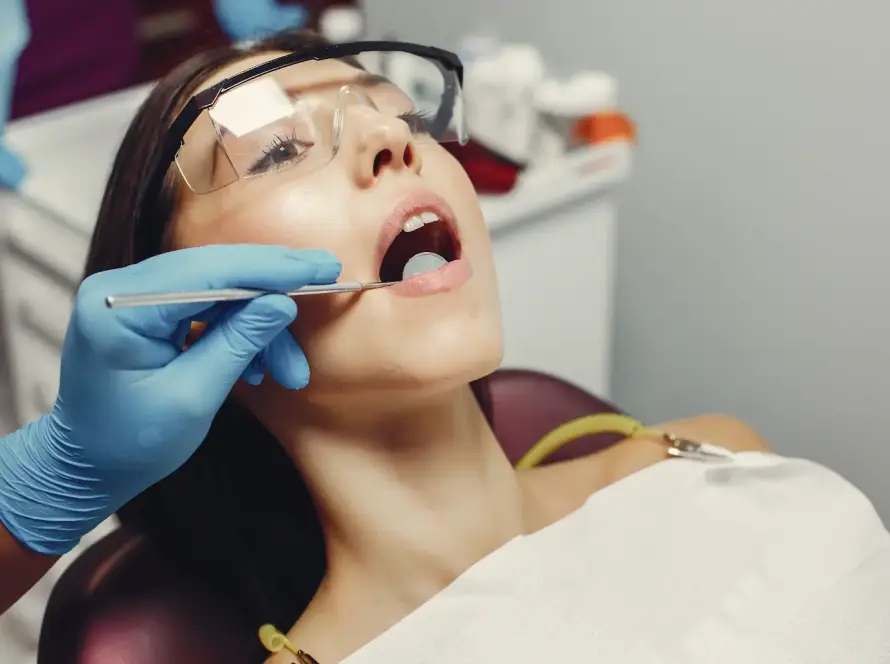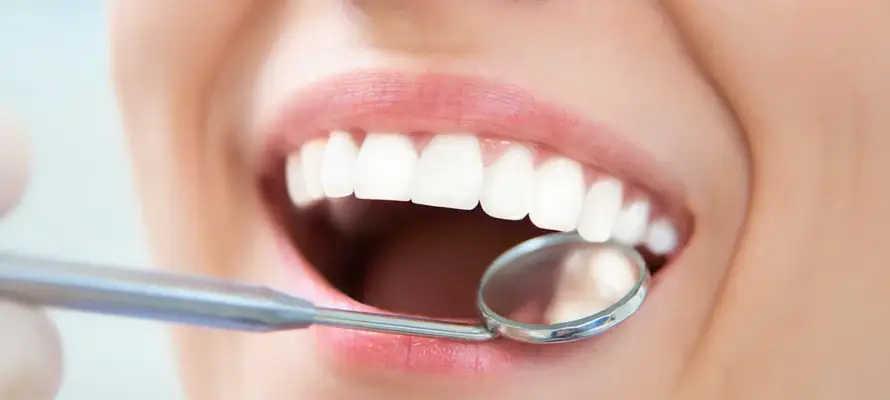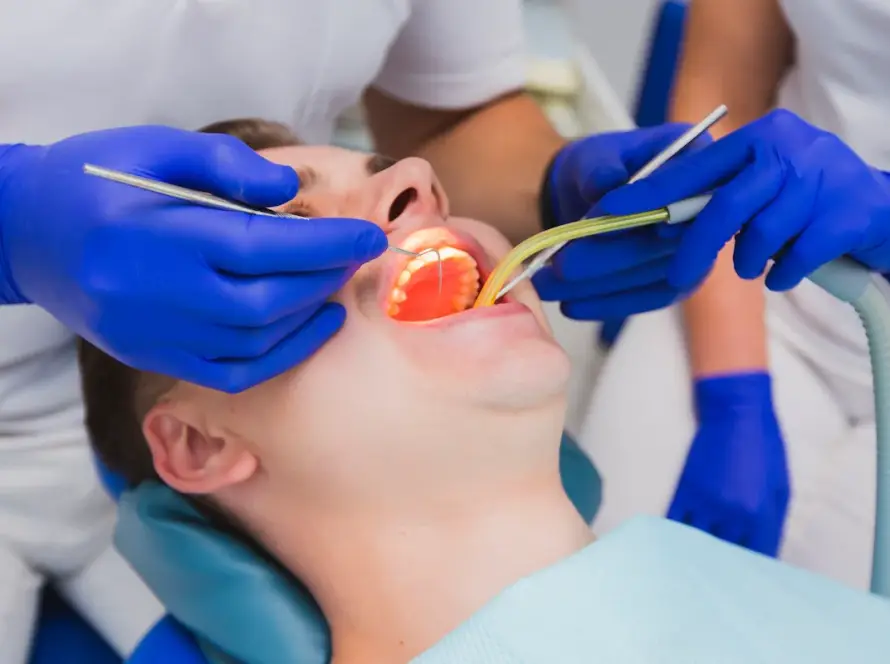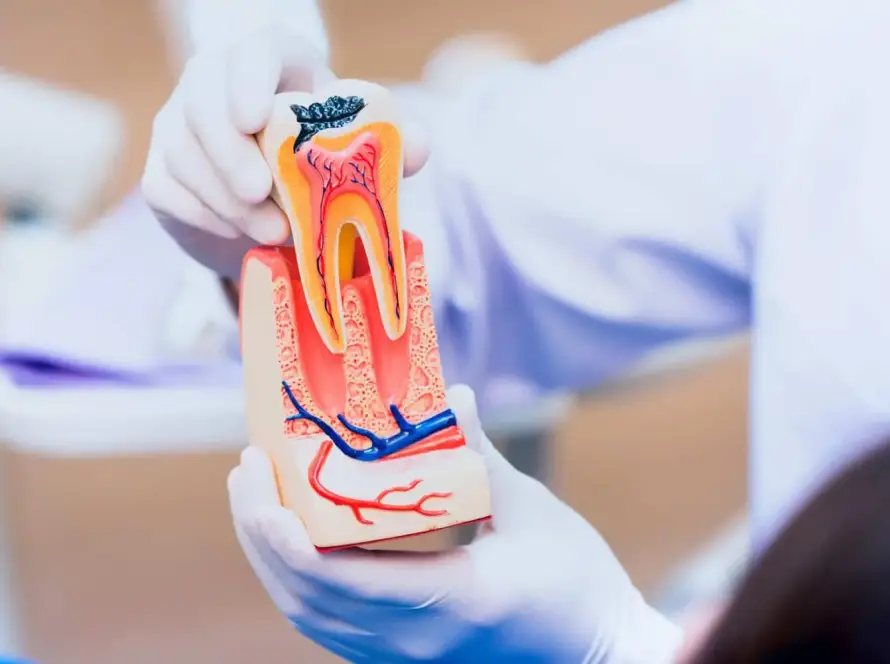- Understanding Dental Crowns
- The Procedure for Getting Dental Crowns
- Does It Hurt to Get Dental Crowns?
- Recovery Period After Getting Dental Crowns
- Potential Risks and Complications
- Tips for Minimizing Discomfort
- Alternative Options to Dental Crowns
- Cost Considerations for Dental Crowns
- Importance of Proper Oral Care After Getting Dental Crowns
- Final Thoughts on Getting Dental Crowns
What is Dental Crown
- Dental crowns are tooth shaped caps that are placed over damaged or weakened teeth to restore their strength, shape, and function.
- Crowns are often recommended to protect teeth that have large cavities, fractures, or extensive decay, as well as teeth that have undergone root canal treatment.
- Crowns can also be used for cosmetic purposes to improve the appearance of misshapen or discolored teeth.

- There are different types of dental crowns available, including porcelain, ceramic, metal, and porcelain fused to metal crowns.
- The choice of crown material depends on various factors, such as the location of the tooth, the patient’s budget, and the desired aesthetic outcome.
- The process of getting a dental crown typically involves two visits to the dentist. During the first visit, the dentist prepares the tooth by removing any decay or damage and shaping it to accommodate the crown. An impression of the tooth is then taken to create a custom crown.
- Temporary crowns may be placed to protect the tooth while the final crown is being fabricated. In the second visit, the temporary crown is removed, and the custom made crown is securely bonded or cemented onto the prepared tooth.
- Local anesthesia is usually administered during the crown preparation process to ensure a pain free experience for the patient.
- While getting a dental crown may involve some discomfort or sensitivity, especially immediately after the procedure, any mild discomfort can typically be managed with over the counter pain relievers.
- With proper oral hygiene and regular dental check ups, dental crowns can last for many years, providing durable and natural looking restoration to damaged teeth.
- It is essential to follow the dentist’s instructions for oral care and maintenance of the dental crown to prolong its lifespan and ensure optimal oral health.
The Procedure for Getting Dental Crowns
The process of getting dental crowns typically involves several steps, ensuring a proper fit and optimal functionality. The following outlines the general procedure for getting dental crowns:
- Consultation: The first step is to schedule a consultation with a dentist. During this appointment, the dentist will examine the tooth in question and determine if a dental crown is necessary.
- X-rays and impressions: X-rays may be taken to assess the tooth’s condition, along with impressions of the tooth and surrounding teeth. These impressions will serve as a model for the dental crown.
- Tooth preparation: Before placing the crown, the tooth needs to be prepared. This involves removing a small amount of enamel to create space for the crown. In cases where significant damage or decay exists, the tooth may need additional restoration, such as a filling or a root canal.
- Temporary crown: A temporary crown may be placed over the prepared tooth while the permanent crown is being fabricated. This temporary crown protects the tooth and maintains its function and appearance.
- Crown fabrication: The dentist sends the impressions to a dental laboratory, where the permanent crown is custom made to fit your tooth accurately. The crown is often made from materials such as porcelain, ceramic, or metal alloys, depending on your specific needs and preferences.
- Crown placement: Once the permanent crown is ready, a second appointment is scheduled. The temporary crown is removed, and the permanent crown is bonded to the tooth using a dental cement. The dentist will ensure the crown fits properly, matches the color of the surrounding teeth, and feels comfortable to bite and chew.
- Post placement care: After the crown is in place, the dentist will provide instructions for proper care. It is crucial to follow good oral hygiene practices, such as brushing, flossing, and regular dental check ups, to maintain the health and longevity of the crown.
The procedure for getting dental crowns is generally straightforward and minimally invasive. However, it is essential to discuss any concerns or questions with your dentist beforehand to ensure a smooth and comfortable experience.
Does It Hurt to Get Dental Crowns?
Getting dental crowns is generally a painless procedure due to the use of local anesthesia. The dentist will numb the affected area before starting the crown placement process, ensuring that the patient feels minimal discomfort during the procedure. However, it is important to note that some individuals might experience a slight sensation or pressure while the dentist prepares the tooth and places the crown. This discomfort is usually mild and temporary. After the procedure, some patients may experience a slight sensitivity to hot or cold food and beverages, but this should subside within a few days. Overall, the actual placement of dental crowns is not typically associated with significant pain or discomfort.
Recovery Period After Getting Dental Crowns
After receiving dental crowns, patients can expect a period of recovery. Although the recovery process is generally smooth, it is important to follow proper aftercare instructions to ensure optimal healing and long term success of the crowns.
Here are some key points to keep in mind during the recovery period:
- Numbness: It is common to experience some numbness in the treated area, especially if local anesthesia was used during the crown placement. This numbness should subside within a few hours after the procedure.
- Sensitivity: It is normal to feel temporary sensitivity in the teeth that have been restored with crowns. This sensitivity may last for a few days or weeks post procedure. Using a toothpaste designed for sensitive teeth can help alleviate this discomfort.
- Pain Management: Some patients may experience mild discomfort or soreness after the placement of dental crowns. Over the counter pain relievers, such as ibuprofen, can be taken as directed to manage any pain. However, if severe pain persists or worsens, it is important to contact the dentist.
- Eating and Drinking: It is advisable to avoid eating or drinking hot food or beverages until the numbness has completely worn off. Opt for softer foods during the initial recovery period to minimize pressure on the newly crowned teeth.
- Oral Hygiene: Good oral hygiene practices are crucial for a smooth recovery. Brushing and flossing should be resumed as soon as possible after the crown placement, taking care to be gentle around the treated area. Regular dental check ups and professional cleanings should be maintained.
- Avoiding Certain Habits: Patients should avoid biting or chewing on hard objects, such as ice or pens, which can damage the crowns. Habits like grinding or clenching teeth should also be addressed, as they can exert excessive force on the new crowns and compromise their longevity.
- Follow-up Appointments: It is important to attend any scheduled follow up appointments with the dentist. These visits allow the dentist to assess the healing process, make any necessary adjustments, and ensure the crowns are functioning properly.
By following these guidelines and maintaining good oral hygiene practices, patients can expect a smooth and successful recovery period after getting dental crowns. It is essential to reach out to the dentist if any concerning symptoms or complications arise during this recovery phase.
Potential Risks and Complications
- Tooth sensitivity: After getting dental crowns, some individuals may experience tooth sensitivity to hot or cold temperatures. This typically subsides within a few weeks as the tooth adjusts to the new crown.
- Discomfort and pain: It is possible to experience some discomfort or pain after getting dental crowns, especially during the first few days. This is usually temporary and can be managed with over the counter pain relievers.
- Allergic reactions: In rare cases, a person may have an allergic reaction to the materials used in the dental crown. This can cause gum swelling, redness, or irritation. If any signs of an allergic reaction occur, it is important to contact a dentist promptly.
- Gum issues: Poorly fitted crowns can cause gum irritation or inflammation. If the crown does not fit properly, it may need to be adjusted or replaced to alleviate this issue.
- Tooth fracture: In some cases, the remaining natural tooth structure may fracture under the pressure of a dental crown. This is more likely to happen if the tooth is already weak or compromised before the crown placement.
- Nerve damage: During the preparation of the tooth for a crown, there is a small risk of nerve damage. Dentists take precautions to minimize this risk, but it is still possible in some cases.
- Chipping or breaking of the crown: While dental crowns are durable, they can still chip or break if subjected to excessive force or trauma. Avoiding activities like grinding teeth, biting on hard objects, or participating in contact sports can help prevent this complication.
It is worth noting that these risks and complications are relatively rare and can often be mitigated or treated effectively by a skilled dentist. To minimize the likelihood of experiencing any adverse effects, it is essential to choose a reputable dentist and to discuss any concerns or preexisting dental conditions beforehand.
Tips for Minimizing Discomfort
Minimizing discomfort during the process of getting dental crowns can greatly contribute to a more pleasant experience. Here are some useful tips to help you manage any potential discomfort:
- Communicate with your dentist: Clearly communicate any concerns or anxieties you may have before the procedure. This will enable your dentist to take necessary steps to ensure your comfort throughout the process.
- Use local anesthesia: Local anesthesia is commonly used during dental crown procedures to numb the area around the tooth being treated. This helps to minimize any discomfort or pain during the process.
- Take over the counter pain medication: If you experience some discomfort after the procedure, over the counter pain medication such as ibuprofen can help alleviate any pain or inflammation. It’s important to follow the recommended dosage and consult your dentist or pharmacist if you have any concerns.
- Practice good oral hygiene: Following the placement of your dental crowns, it’s crucial to maintain proper oral hygiene. Brushing twice a day, flossing regularly, and using antimicrobial mouthwash can prevent infections or any discomfort caused by poor oral health.
- Avoid biting on hard or sticky foods: To avoid potential discomfort or damage to your dental crowns, it is advisable to avoid biting on hard or sticky foods, especially in the initial days after the procedure. Opt for softer foods and gradually reintroduce harder textures as advised by your dentist.
By following these tips, you can significantly reduce any discomfort associated with the dental crown procedure and ensure a smoother recovery. Remember, consulting with your dentist for personalized advice is always recommended.
Alternative Options to Dental Crowns
While dental crowns are a common and effective treatment for various dental conditions, there are alternative options available depending on the specific situation. These alternatives can be considered in certain cases to provide a suitable and less invasive solution. Here are some alternative options to dental crowns:
- Dental Veneers: Veneers are thin shells made of porcelain or composite resin that are bonded to the front surface of the teeth. They are often used to improve the appearance of teeth that are chipped, stained, or slightly misaligned. Veneers are less invasive than crowns as they require minimal removal of tooth structure.
- Dental Bonding: Bonding is a procedure in which a tooth colored resin material is applied to the tooth and then hardened with a special light. This can be used to repair teeth that are cracked, chipped, or discolored. Dental bonding is a relatively quick and inexpensive alternative to crowns, but it may not be as durable and long lasting.
- Inlays and Onlays: Inlays and onlays are indirect restorations made of porcelain, composite resin, or gold. They are used to repair teeth with larger cavities or damage that does not require a full crown. Inlays are placed within the tooth, while onlays cover a larger portion of the tooth. These restorations are custom made and offer a more conservative approach compared to crowns.
- Orthodontic Treatment: In some cases, orthodontic treatment such as braces or clear aligners may be recommended to correct alignment issues, bite problems, or spacing irregularities. By straightening the teeth, orthodontic treatment can improve the overall appearance and function of the smile without the need for crowns.
- Dental Implants: When a tooth is severely damaged or needs to be extracted, a dental implant can be considered as an alternative to a crown. Dental implants involve the placement of a titanium post in the jawbone, which serves as a foundation for attaching a dental crown. Implants provide a permanent solution that mimics the look and function of a natural tooth.
- Tooth Whitening: For individuals who are primarily concerned about tooth discoloration or stains, tooth whitening treatments may be a suitable alternative to crowns. Professional teeth whitening options can effectively remove stains and brighten the teeth, improving their appearance without the need for invasive procedures.
It is important to consult with a qualified dentist to determine which alternative option is most suitable for your specific dental condition. They can evaluate your oral health, discuss your treatment goals, and recommend the best alternative option that fits your needs.
Cost Considerations for Dental Crowns
When considering getting dental crowns, it is important to take into account the associated costs. Here are some factors to consider when thinking about the financial aspects of dental crowns:
- Material: The cost of dental crowns can vary depending on the material used. Common materials for crowns include porcelain fused to metal, all ceramic, and gold. Porcelain fused to metal crowns tend to be more affordable compared to all ceramic or gold crowns.
- Location: The cost of dental crowns can differ based on the location and dental clinic. Areas with a higher cost of living usually have higher dental treatment costs. It may be worth checking out different clinics and comparing their prices to find the best option for your budget.
- Complexity: The complexity of the dental crown procedure can affect the cost. If there are additional treatments needed, such as root canal therapy or tooth extraction, the overall cost may increase. The number of teeth requiring crowns also plays a role in determining the final cost.
- Insurance Coverage: It is essential to check your dental insurance coverage before getting dental crowns. Some insurance plans may cover a portion of the cost, while others may not cover them at all. Understanding your insurance policy can help you plan your budget accordingly.
- Additional Costs: Apart from the crown itself, there may be additional costs to consider. These can include fees for initial consultations, X rays, anesthesia, and follow up appointments. It is advisable to discuss these potential costs with your dentist beforehand.
Remember that dental crowns are an investment in your oral health and overall well being. While the upfront cost may seem significant, they can provide long term benefits, such as restored functionality and improved aesthetics.
To determine the exact cost of dental crowns, it is recommended to consult with a dentist. They will consider your specific dental needs and provide you with a personalized treatment plan along with the associated costs.
By considering these cost factors and discussing your concerns with your dentist, you can make an informed decision about dental crowns that aligns with your budget and dental needs.
Importance of Proper Oral Care After Getting Dental Crowns
Proper oral care is crucial after getting dental crowns to ensure their longevity and maintain overall oral health. By following these essential practices, individuals can enhance the lifespan of their dental crowns:
- Regular brushing and flossing should be maintained to remove plaque and prevent the buildup of bacteria around the dental crowns. It is recommended to use a soft bristle toothbrush and non abrasive toothpaste to avoid damaging the crown’s surface.
- Using antimicrobial mouthwash can help reduce bacterial growth and maintain oral hygiene. It is advisable to consult a dentist to choose the appropriate mouthwash.
- Avoiding certain foods like hard candies, ice, or sticky substances that can exert excessive pressure on the dental crowns and potentially cause damage.
- Regular dental check-ups are essential to ensure the crown’s condition and overall oral health. Dentists can examine the crowns, detect any issues, and provide necessary treatments promptly.
- Addressing teeth grinding or clenching by using a nightguard or seeking professional advice helps to prevent wearing down the dental crowns.
Proper oral care after receiving dental crowns not only ensures their durability but also promotes oral health as a whole. By adhering to these practices, individuals can enjoy the benefits of their dental crowns for an extended period.
Final Thoughts on Getting Dental Crowns
In summary, getting dental crowns can be a beneficial solution for various dental issues such as tooth decay, cracks, or discoloration. While the process may involve some discomfort, it is generally a minimally invasive and straightforward procedure. The level of pain experienced during the placement of dental crowns can vary depending on the individual’s pain tolerance and the complexity of the case. However, dentists take measures to ensure patient comfort throughout the procedure, including the use of local anesthesia. It is important to follow proper oral hygiene practices and visit your dentist regularly to ensure the longevity of your dental crowns. Remember, consulting with a qualified dentist is crucial for any dental procedure to determine the best treatment plan for your specific needs.















